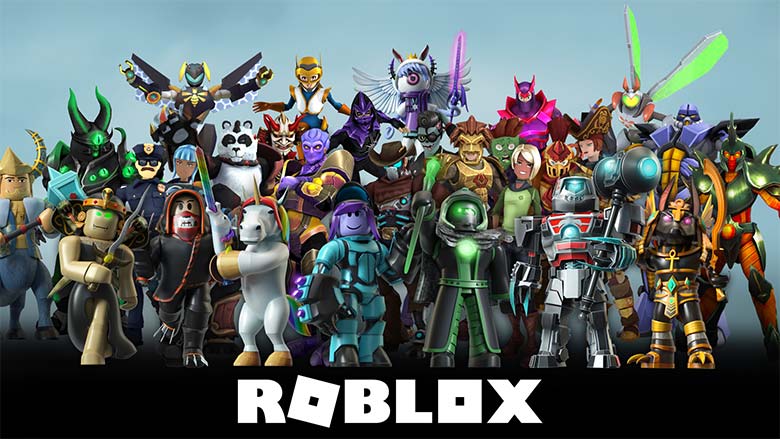
Roblox
60 percent of teens rarely or never talk about appropriate behavior online with their parents even though 93 percent of parents said they talk about it at least occasionally, according to the Digital Civility Survey commissioned by popular gaming platform Roblox.
580 teens and 3,571 parents of seven to 17-year-old children responded to the survey through SurveyMonkey. Roblox shared the results of the survey to Heavy via email.
76 of parents responding to the survey said that they talk very frequently or frequently with their child about appropriate behavior online, with another 17 percent saying that they occasionally talk about it and 6 percent saying they rarely, very rarely or never talk about it.
However, only 12 percent of teens responding to the survey said that they talked very frequently or frequently about appropriate behavior online with their parents. 27 percent of teens said that they occasionally talk to their parents about online behavior while 60 percent said they rarely, very rarely or never talk to their parents about online behavior.
91 percent of parents said that their child would be likely to come to them for help if they were bullied online. However, only 26 percent of teens said they would tell a parent if they saw someone being bullied online. According to the survey, teens were more likely to report it to the platform they were on (53 percent of respondents), talk to the bullied person one-on-one (41 percent) or tell a teacher or another adult (33 percent). 96 percent of teens reported that they were likely to help a friend being bullied online.
“This data highlights the importance of initiating potentially uncomfortable conversations about appropriate online behavior and keeping open communication channels with your children,” said Laura Higgins, director of digital civility at Roblox. “The internet is a vast and daunting place, particularly for those of us who didn’t grow up in the digital world, but getting involved in our kids’ digital lives is our best chance to raise a generation of empowered digital citizens. Simply checking in every day to see what your kids are experiencing online will help build a trusting and open relationship, encouraging them to ask you for help when they need it most.”
Both parents (91 percent) and teens (77 percent) said that online bullying is at least somewhat of a problem for young people today.
Millennial parents said they spend more time monitoring their children’s behavior online (with 68 percent saying they are very aware of their activities) than baby boomers (47 percent) and Gen X (48 percent). Over half (55 percent) of millennial parents use parental controls to track their kids’ online activities while less than half of Gen X (42 percent) and boomers (47 percent) use them. Millennial parents also monitor and track their children’s online gaming habits and are more likely to play video games with them to keep track of their activities compared to Gen X and boomers.
Of the parents who don’t monitor their child’s behavior online, 42 percent said it’s because they just don’t feel the need to do so, 20 percent said they don’t know how, 12 percent said they want their child to be independent and 4 percent said their child won’t let them be involved. The results were similar across millenial, Gen X and baby boomer parents.
“It can feel intimidating at times to keep up with the fast pace of which apps and devices our children use. This requires parents to educate themselves and ensure they understand how functions like chat work on a platform, or how to report bad actors and harmful content,” Family Online Safety Institute CEO Stephen Balkam said. “We also encourage parents to sit down with their kids and familiarize themselves with the platforms together. This creates an opportunity to have a meaningful conversation about safety and protecting personal information.”
19 percent of all teenage respondents reported personally experiencing online bullying in the past 12 months. Slightly more girls reported being bullied than boys (21 percent for girls and 17 percent for boys) and slightly more respondents who identified as white reported being bullied than those who identified as non-white (21 and 16 percent respectively). 22 percent of parents reported that their child has been bullied online, while 11 percent said that they’ve experienced it themselves.
65 percent of teens report often seeing others using offensive or inappropriate language while playing online games, and 27 percent of them report using bad language themselves.
“While some platforms strive to create a safe environment for younger users and are relentless in combating bad actors, teens may opt to use more open platforms—like unmoderated chat apps—in tandem with curated ones to bypass restrictions and push boundaries,” Higgins said.
“Unfortunately, such freedom also allows ‘banter,’ bad language, and a lot of bravado, so it’s important for parents and caregivers to understand where their kids are hanging out online and how they are weaving social platforms together. While we can’t always control what our kids see on the internet, we can help shift control back to the kids by empowering them with the tactics and tools to handle bad actors or bad behavior.”
Roblox welcomes more than 100 million people around the world to their platform every day, according to the news release.
To learn more about safety online, visit Roblox’s Digital Well-Being page.
See also:
